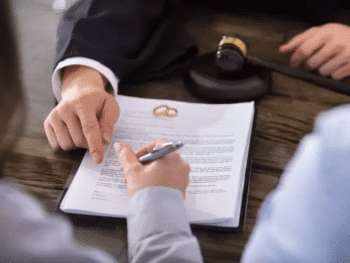 The division of property is based upon the state of residency. In the state of Kentucky, a court must divide all assets. While this distribution may not be equal, assets division will be handled with the upmost fairness. The following are a few ways a court will divide business assets in a divorce…
The division of property is based upon the state of residency. In the state of Kentucky, a court must divide all assets. While this distribution may not be equal, assets division will be handled with the upmost fairness. The following are a few ways a court will divide business assets in a divorce…
Buy-out Your Spouse
If the property is co-owned and there is negative energy that is hindering the spouses from remaining professional, one spouse might considering buying out the other’s half. This must be agreed upon by both parties.
Co-ownership
If the spouses are on good terms, they could continue to share the business after the divorce. If the business holds emotional value for both parties, they may commit to having a professional relationship even after their marriage has ended. If neither party wants to give up their share but they also do not get along, they might agree to one of them becoming a silent partner. Silent partners do not play a role in the day-to-day aspects of the business but they still contribute financially and benefit from the profits of the business.
Sell The Business
In the event that a buy-out or co-ownership are not feasible options, both parties can choose to sell the business in it’s entirety and divide the money evenly. This may seem simple but it can become complicated as it can come with its own share of problems. Sometimes one spouse will not agree to sell their half. It can also take some time to find a buyer based on the market for the particular type of business.
Contact us (859-341-2500) for a Free Consultation!
—
 About Grubbs & Landry
About Grubbs & Landry
At Grubbs & Landry, PLLC, we are dedicated to personal and friendly service. We manage our practice in an ethical, cost-effective manner to best help our clients resolve their legal issues with the least expense possible. We pride ourselves in advocating for our client in divorce, child custody, and child support matters as well as other family law matters. We are active in prosecuting personal injury cases-recovering for the injuries our clients sustain due to the negligence of others. Additionally, we help our clients prepare for the future through the preparation of Wills, Power of Attorney and Living Will.
>> Learn More

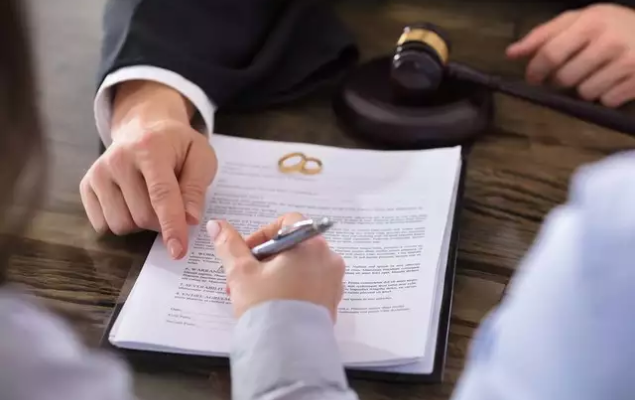

 If you are suffering from Bipolar Disorder and are no longer able to work, you should contact an attorney specializing in Social Security Disability to improve your chances of receiving SSDI or SSI benefits. Historically known as Manic Depressive Disorder, Bipolar Disorder is a mental illness characterized by cyclic mania or periods of extreme euphoria followed by bouts of severe depression. This mental disorder is not a mood disorder alone, but a category of severe mood disorders. It is a condition that is prevalent in both men and women.
If you are suffering from Bipolar Disorder and are no longer able to work, you should contact an attorney specializing in Social Security Disability to improve your chances of receiving SSDI or SSI benefits. Historically known as Manic Depressive Disorder, Bipolar Disorder is a mental illness characterized by cyclic mania or periods of extreme euphoria followed by bouts of severe depression. This mental disorder is not a mood disorder alone, but a category of severe mood disorders. It is a condition that is prevalent in both men and women.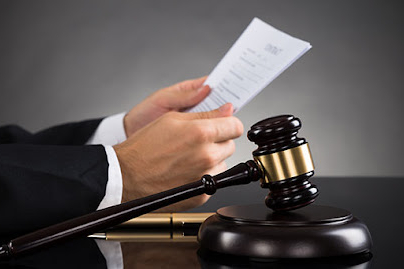
 Once the divorce is completed and a judgment entered, either or both spouses can appeal a trial court judge’s decision to a higher (“appellate” or “appeals”) court. Because of the deference given to the original judge, it is unusual, but not impossible, for an appeals court to overturn a judge’s decision in a divorce case. Settlement agreements usually cannot be overturned on appeal if both spouses agreed to the terms of the settlement unless there were problems with how the agreement was reached or other enforceability issues. The court places a great deal of faith in the judge’s final decision.
Once the divorce is completed and a judgment entered, either or both spouses can appeal a trial court judge’s decision to a higher (“appellate” or “appeals”) court. Because of the deference given to the original judge, it is unusual, but not impossible, for an appeals court to overturn a judge’s decision in a divorce case. Settlement agreements usually cannot be overturned on appeal if both spouses agreed to the terms of the settlement unless there were problems with how the agreement was reached or other enforceability issues. The court places a great deal of faith in the judge’s final decision.
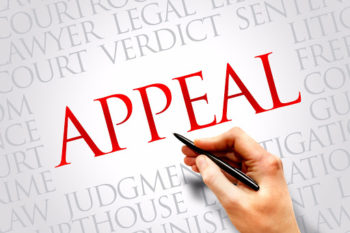 Did you know that the majority of Social Security disability claims are denied the first time? That is why it is important that those who have had their claim for Social Security disability benefits denied to fully understand their right to appeal and how to do so. Social Security disability benefits are offered to those who are disabled and have a medical condition that is severe enough that it leaves them unable to work AND that is anticipated to last longer than 12 months or lead to their death. There are also specific work history eligibility requirements that must be met. If your application for benefits has been denied, the appeals process has a few levels of appeals. They are as follows…
Did you know that the majority of Social Security disability claims are denied the first time? That is why it is important that those who have had their claim for Social Security disability benefits denied to fully understand their right to appeal and how to do so. Social Security disability benefits are offered to those who are disabled and have a medical condition that is severe enough that it leaves them unable to work AND that is anticipated to last longer than 12 months or lead to their death. There are also specific work history eligibility requirements that must be met. If your application for benefits has been denied, the appeals process has a few levels of appeals. They are as follows…
 If you’ve been in a car accident while working, it’s normal to be upset and anxious, especially if other people were badly injured. You may be technically at fault for the crash, but you still deserve protection. If you have any worries that your employer’s insurance company is going to throw you under the bus, contact a personal injury attorney. When you add an addition complication to a crash, it can be difficult for the average individual to make sense of who incurs liability and financial responsibility for the injured and the property damage. If someone else causes the crash and they were on the job at the time you may have to deal with a complicated third party insurance claim.
If you’ve been in a car accident while working, it’s normal to be upset and anxious, especially if other people were badly injured. You may be technically at fault for the crash, but you still deserve protection. If you have any worries that your employer’s insurance company is going to throw you under the bus, contact a personal injury attorney. When you add an addition complication to a crash, it can be difficult for the average individual to make sense of who incurs liability and financial responsibility for the injured and the property damage. If someone else causes the crash and they were on the job at the time you may have to deal with a complicated third party insurance claim. 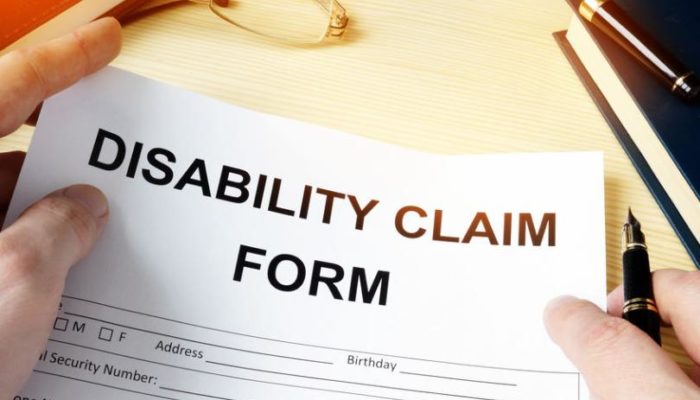
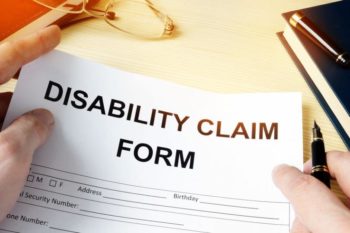 If you find it hard to hold down a job because of a severe mental or emotional condition—such as depression, bipolar disorder, anxiety, PTSD, or autism—you might be asking yourself: What are my chances of getting Social Security disability benefits? You may file a claim. The SSA should recognize the claim that prevents you from working and is expected to last at least a year. It can be confusing to understand the SSA requirement for mental illness. It is unfair sometimes that you have to jump through so many hoops. Do not give up if your benefits are denied the first time the appeals process can be done and you may go on to recover benefits.
If you find it hard to hold down a job because of a severe mental or emotional condition—such as depression, bipolar disorder, anxiety, PTSD, or autism—you might be asking yourself: What are my chances of getting Social Security disability benefits? You may file a claim. The SSA should recognize the claim that prevents you from working and is expected to last at least a year. It can be confusing to understand the SSA requirement for mental illness. It is unfair sometimes that you have to jump through so many hoops. Do not give up if your benefits are denied the first time the appeals process can be done and you may go on to recover benefits. 
 In Kentucky, or through Social Security Administration (SSA) short-term disability insurance is not guaranteed, and there are no laws protecting employees with short-term disabilities. However, there are other benefits that an employee can use if he is temporarily disabled. A countless number of people find themselves dealing with a temporary disability that is not permanent. Because of this many people turn to their own independent short-term disability insurance policies or employer-provided short-term disability coverage. The following are some examples of short term disability options you may have…
In Kentucky, or through Social Security Administration (SSA) short-term disability insurance is not guaranteed, and there are no laws protecting employees with short-term disabilities. However, there are other benefits that an employee can use if he is temporarily disabled. A countless number of people find themselves dealing with a temporary disability that is not permanent. Because of this many people turn to their own independent short-term disability insurance policies or employer-provided short-term disability coverage. The following are some examples of short term disability options you may have… 
 When an insurance company offers you a settlement, they are essentially acknowledging their client’s fault in the accident. They want you to settle to avoid litigation or going to court. Insurance companies usually do not want to get legal help involved, If you get a call from them before you have contacted your lawyer absolutely tell them you want to consult with an attorney before agreeing to settle a case. If the injuries are sustained in any kind of collision, and whether the injuries appear minor or resulted in a fatality, broken bones, paralysis, or other injuries, you should talk to an attorney before talking to an insurance agent or adjuster about the facts of the case.
When an insurance company offers you a settlement, they are essentially acknowledging their client’s fault in the accident. They want you to settle to avoid litigation or going to court. Insurance companies usually do not want to get legal help involved, If you get a call from them before you have contacted your lawyer absolutely tell them you want to consult with an attorney before agreeing to settle a case. If the injuries are sustained in any kind of collision, and whether the injuries appear minor or resulted in a fatality, broken bones, paralysis, or other injuries, you should talk to an attorney before talking to an insurance agent or adjuster about the facts of the case.